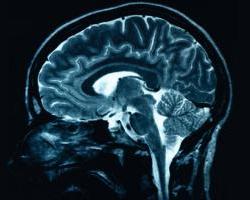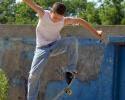Researchers find that there are major differences between kids with autism spectrum disorder (ASD) and kids without according to brain scans of areas in the brain that show play behavior, brain activation patterns and stress levels.
Researchers at Vanderbilt University conducted a first-of-its-kind study that explored social play exchanges on multiple levels, showing associations among brain regions, behavior and arousal in children with ASD.
"Play is a fundamental skill in childhood and an area in which children with autism often have difficulty," said principal investigator Blythe Corbett, Ph.D., associate professor of Psychiatry and a Vanderbilt Kennedy Center investigator. "However, the psychobiological study of play in autism is seldom comprehensively investigated using multiple levels of analysis."
Corbett and colleague Kale Edmiston studied children with ASD using an innovative study design in which participants played with a normally developing child on a playground and then played a social exchange game with either the same child or a computer partner during functional imaging.
In order to measure physiological arousal, they used salivary cortisol sampling before and after the playground protocol.
During a functional MRI (fMRI) scan, participants played a game in which they were asked to cooperate or to compete with a co-player. For half of the game, participants were told they were playing with a child they had just met on the playground. For the other half of the game, children were told they were playing with a computer. However, the children were actually playing with a computer the entire time.
"When participants with ASD were in the MRI scanner and thought they were playing with the child they had just met, their brain activation patterns did not differ from when they thought they were playing with a computer," said Edmiston, who is completing a doctorate in the Vanderbilt Brain Institute Neuroscience Graduate program. "In contrast, typically developing children showed unique activation patterns based on which partner they were playing. This suggests that social agents might not be processed in the brains of people with ASD differently than nonsocial agents."
"[This suggests that] some children with autism not only find social engagement with peers less motivating, but it may be stressful, even aversive."
The team reported their findings in the journal Social Cognitive Affective Neuroscience.
Source: MNT







